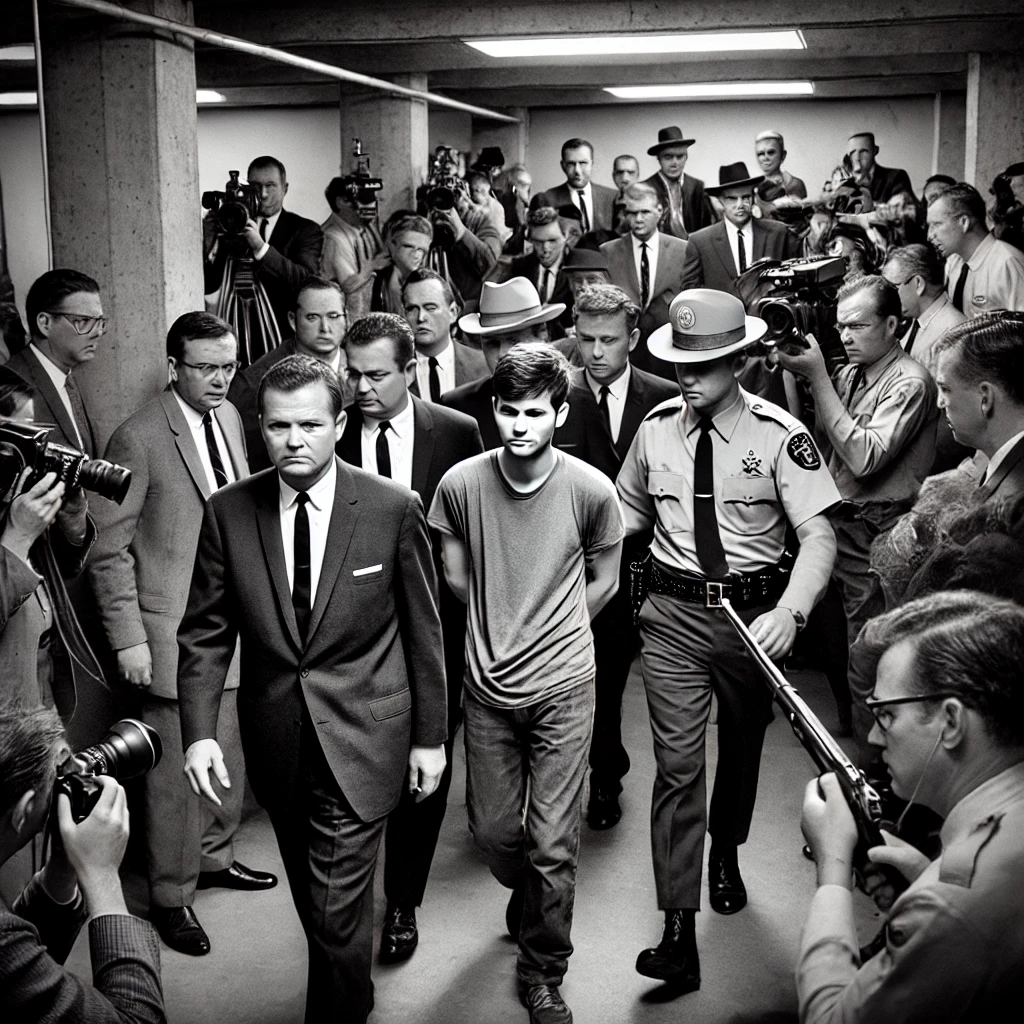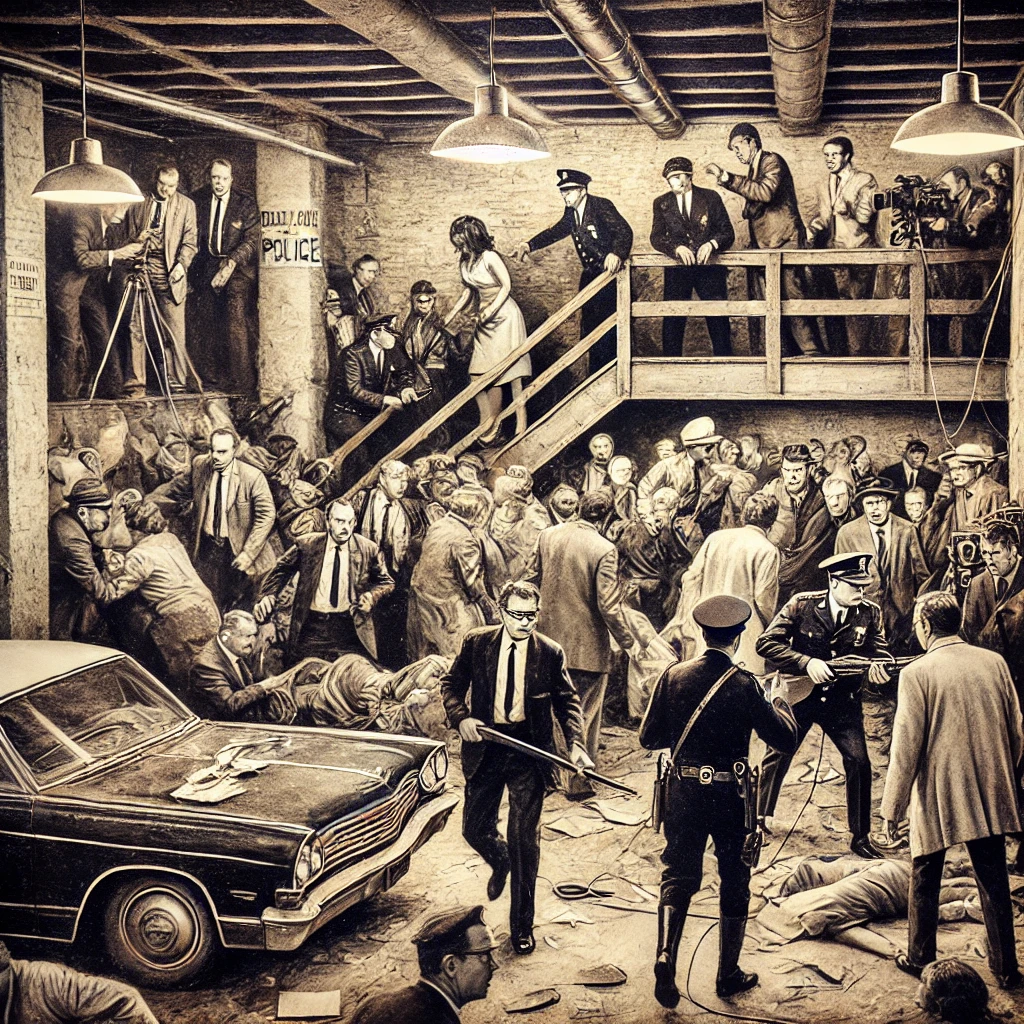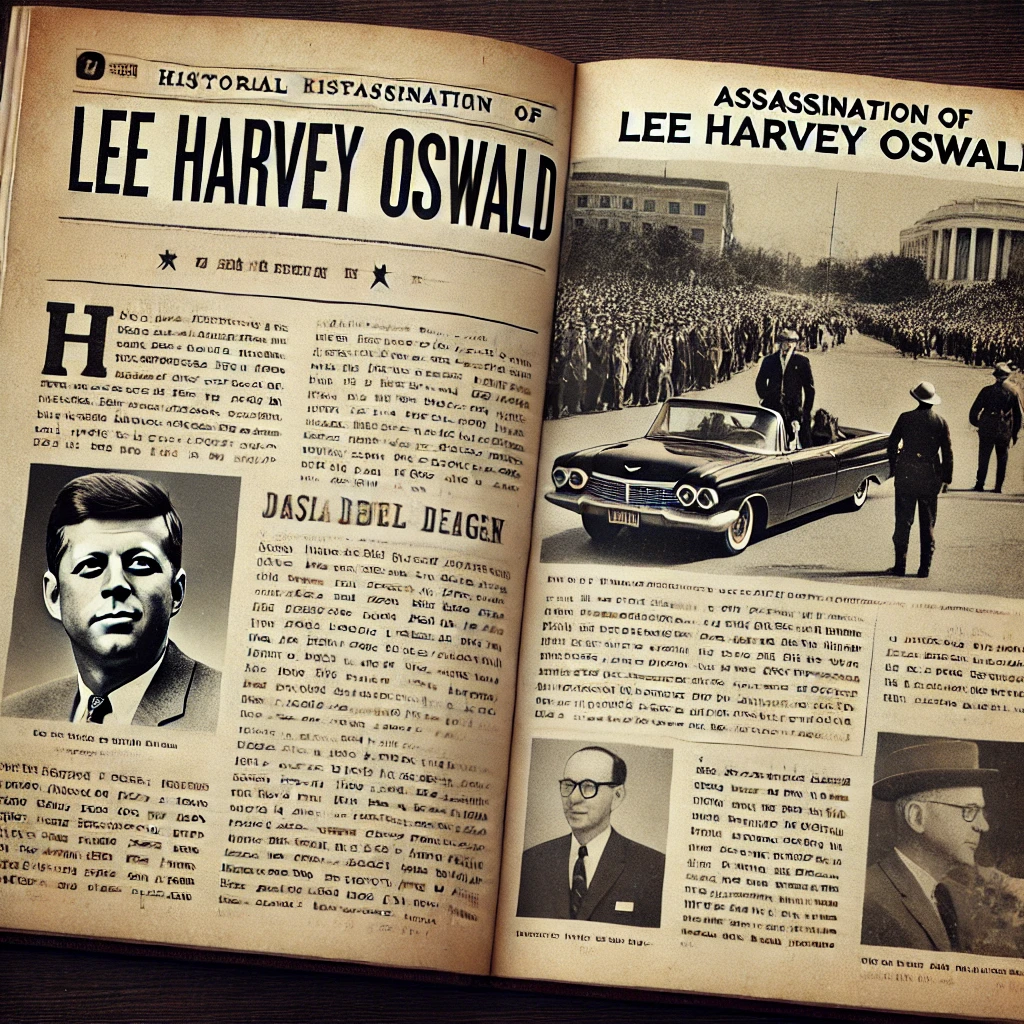On November 24, 1963, just two days after President John F. Kennedy was tragically assassinated in Dallas, the world witnessed another shocking moment: Lee Harvey Oswald, the man accused of killing the president, was gunned down on live television. Jack Ruby, a Dallas nightclub owner, pulled the trigger in the basement of the Dallas Police Headquarters, forever etching this event into the annals of American history. Millions who were glued to their screens saw the incident unfold in real-time, amplifying the chaos and confusion surrounding the Kennedy assassination.

This stunning sequence of events not only added to the mystery but also shifted public perception. Oswald’s death prevented the nation from learning more about his potential motives or possible conspirators. What might have been uncovered during a trial was silenced, leaving questions unanswered to this day.
Historical Significance: A Nation Distraught and Distrusting
Oswald’s assassination by Ruby deepened the wounds of a country already reeling from Kennedy’s death. The event underscored the vulnerabilities in security and the inefficiencies in handling suspects, leading to widespread criticism of the Dallas police and federal agencies. Ruby, claiming he acted out of outrage and grief for the slain president, added fuel to conspiracy theories that were already brewing. Was he part of a larger plot, or did he act alone?

The Warren Commission, established to investigate Kennedy’s assassination, faced even more scrutiny after Oswald’s death. While the commission concluded that Oswald acted alone in killing the president and that Ruby was not part of any conspiracy, public skepticism persisted. The suddenness of Oswald’s death left the nation grappling with a sense of injustice and distrust in the official narrative.
Legacy and Lasting Impact

The assassination of Lee Harvey Oswald has had a profound and enduring impact on American society and culture. It cemented the Kennedy assassination as one of the most analyzed and debated events in modern history. Countless books, documentaries, and films have sought to unravel the layers of intrigue surrounding both Kennedy’s death and Oswald’s murder.
Moreover, Oswald’s assassination highlighted flaws in law enforcement practices and security measures, leading to reforms that reshaped how suspects are handled and protected. It also underscored the power of live television, as millions witnessed a moment that encapsulated the chaotic and emotionally charged atmosphere of the era.
Even today, the shadow of conspiracy theories looms large. For many, Oswald’s death epitomizes the unanswered questions and unresolved doubts of a pivotal moment in American history. This tragic chapter serves as a reminder of the fragility of justice and the complexities of truth in the face of national tragedy.
